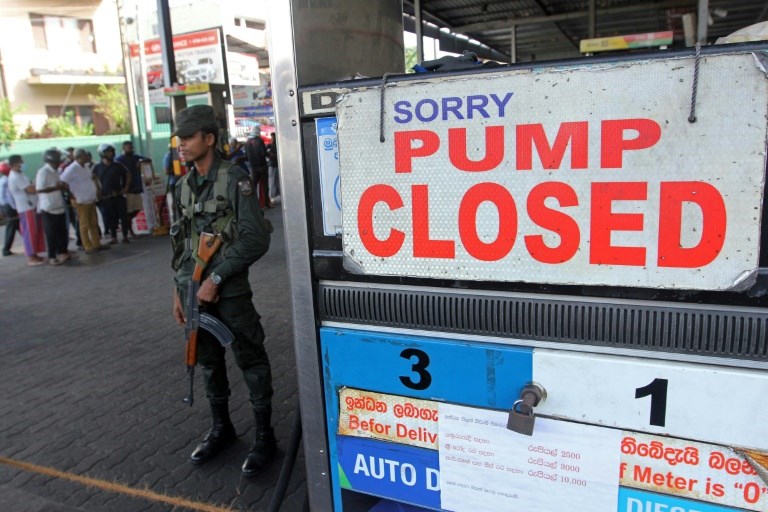Bankrupt Sri Lanka opens oil market to foreign firms
Cash-strapped Sri Lanka announces its readiness to open its oil market to foreign firms following severe fuel shortages.
-

Bankrupt Sri Lanka opens the oil market to foreign firms.
On the same day that chronic fuel shortages forced a nationwide halt to petrol and diesel sales, Sri Lanka announced on Tuesday that it would open its oil market to foreign competition.
The South Asian island nation is experiencing an unprecedented economic crisis because it cannot afford to import essentials such as enough oil and gas to meet its energy needs.
Long blackouts have become the norm, and motorists have been forced to wait in daylong lines for scarce supplies of gasoline.
Rationing has been in place, but on Monday night the government banned fuel sales for two weeks in order to conserve Sri Lanka's limited emergency stockpiles.
Read next: Sri Lanka: Troops open fire to quell unrest over fuel shortages
Ministers said the crisis made it an appropriate time to allow firms from oil-producing countries to enter the market "to enable them to import and sell fuel using their funds," according to a cabinet statement issued on Tuesday.
Although the oil industry in Sri Lanka was nationalized in 1961, a third of the market was granted to a local unit of India's state-owned oil and gas company in 2003.
Check this: The Sri Lankan economic crisis
Despite the sales ban, long lines of vehicles were seen outside gas stations on Monday, with motorists hoping to fill up as soon as supplies resumed.
Sri Lanka went into default on its $51 billion foreign debt in April and is currently negotiating a bailout with the International Monetary Fund.
Sri Lanka announces two-week fuel sales halt
Sri Lanka announced a two-week halt to all fuel sales except for essential services starting Monday and called for a partial shutdown as its unprecedented economic crisis deepened.
The South Asian nation is facing its worst economic meltdown since gaining independence from Britain in 1948 and has been unable to finance even the imports of essentials since late last year.
As fuel reserves hit rock bottom with supplies barely enough for just one more day, Sri Lankan government Spokesperson Bandula Gunawardana said the sales ban was to save petrol and diesel for emergencies.
Read next: UN worries Sri Lanka could lead to humanitarian disaster
Moreover, the government has sent ministers to Russia and Qatar to source cheaper oil, and President Gotabaya Rajapaksa met with Moscow's envoy in Sri Lanka this week to discuss fuel and other imports.
A US delegation is also in Colombo to assess the country's needs after the UN issued a flash appeal for food assistance to some 1.7 million people.
While attending the G7 Summit in Germany, President Joe Biden announced a $20 million grant to feed approximately 800,000 children.

 3 Min Read
3 Min Read








